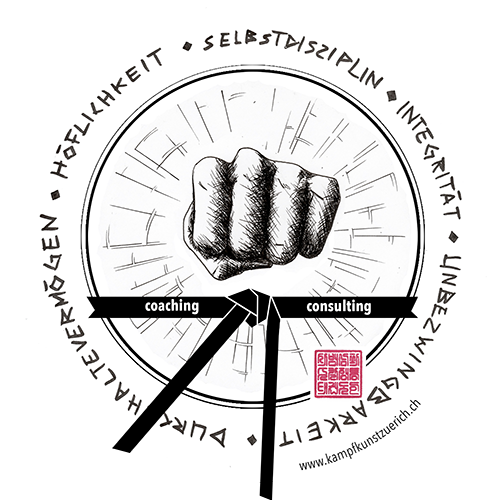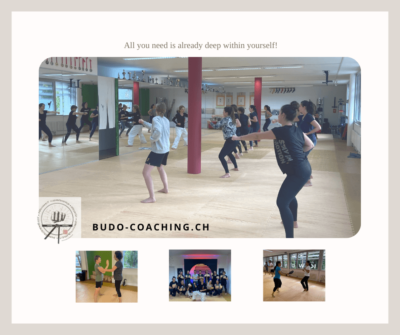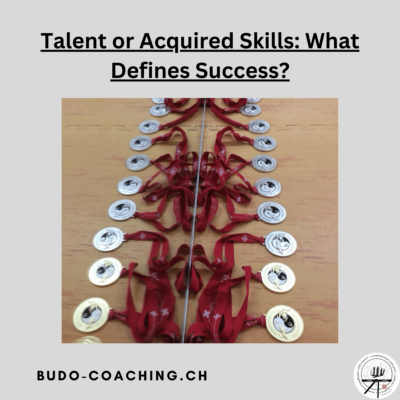Open up to your world of possibilities Do you find yourself constantly worrying about what…

Deciding without brooding: 7 helpful methods and 1 way
How to untie the knot
Our life consists of choices. As soon as we get up, until we go to sleep, we start choosing between options: we constantly make choices, no matter how serious: whether it’s about what to wear or to have breakfast, whether to accept a job offer or to break up with someone.
The bigger and impactful the decision, the more doubts we face trying to guess the unknown.
Some people find it harder than others to deal with the many decisions that life presents every day. They hesitate and spend lots of time pondering options, which eventually undermine self-confidence and self-esteem – and generate a feeling of helplessness.
What is the cause of the indecision?
To gain more confidence when making a decision, it is important to first understand what is stopping you.
🔎Is it the fear of making mistakes and failing?
The fear of making mistakes affect or even stops your decision making process and often leads to stagnation; we then come to terms with situations even when they do not feel right, such as staying in a job or a relationship that no longer suits us.
🔎Is it the fear of hurting others’ feelings?
Making certain choices often means going against the expectations of others; we feel the pressure from our social environment, want to continue to be valued and are therefore afraid of damaging or even breaking relationships. Like Lena, who is studying medicine like in the family tradition, where everyone in the family is a doctor and expected to become one, although she would rather work as an artist and really blossoms with her pottery.
🔎Is it the fear of not having enough information?
Sometimes we are called to make quick decisions and not always with thorough information to back them up; quite often, however, exactly the opposite happens: we have far too much information, too many choices, which causes delays, even stress and slows us down. Like Jürgen, who spends hours researching consumers’ reviews: Whenever he needs to purchase something, he compares products and wants to know the exact price-performance ratio. Good, sure if at one point he would make up his mind – unfortunately, while searching for the “perfect” deal, he ends up wasting hours and often not coming to final a decision.
🤔So, what’s the best way to make decisions, especially when we are totally confused?
What helps us when we are overwhelmed with even the simplest everyday decisions such as outfit or hairstyle? What to do when there are too many equally good-sounding options?
First and foremost, to avoid this overwhelming feeling, it is important to limit your selection.
The following methods can be helpful when making important decisions:
1️⃣ Create a list of pros and cons
List all the pros and cons of your possible options. The pro/cons list is a simple way to decide for or against clearly defined alternatives.
For this purpose, collect arguments for and against the respective options in a table with two columns. In many cases, just comparing the advantages and disadvantages provides a certain degree of certainty when deciding.
However, the weighting only works if there is clarity and consensus about the main criteria. Otherwise, the list is easy to manipulate.
If you write down entries on the pro side that are only fulfilled by one option, it could very well be that this is a distorted perception which unconsciously support the option you prefer anyway and your list is not objective any longer.
2️⃣ Pros only list
Write only the positive aspects of your options, note only what speaks for each option and evaluate where the most important benefits show up. This strategy is useful when you have to choose between options which are all good.
3️⃣ The decision matrix
The decision matrix is a grid where we list the criteria on one axis and the available options on the other. By numbering the variables, we can schematically visualize the possible outcomes of our decisions. The best option gets a 1, the second best gets a 2, and so on. Finally, we calculate the average of these numbers for each option. The lowest value wins. This process forces us to find the priorities in the decision to be made and also to figure out what would be the worst scenario.
4️⃣ Exclusion system
When you have a multitude of options, just have two options at the time “compete” against each other. The better option enters the next round and so. Just like in a fighting competition, the winners of each match always compete against each other until the final fight, which determines the winner.
5️⃣ Put on neutral glasses and observe from a distance
We often find it difficult to make decisions because they affect us personally. So, imagine a friend faced with the very decision you need to make. What advice would you give him? It is usually easier for us to give tips to others than to implement them ourselves.
6️⃣ Visualise yourself in the future
Sometimes we are not able to decide: we are unsure, scared of the unknown or simply lacking experienced in certain situations. In this case, it’s a good idea to project ourselves into the future. We can concretely visualize the situations that result from our decisions.
What could we lose if we fail and how big would be our win if we succeed?
Visualize both the best and worst possible scenarios.
In doing so, we often realize that the negative consequences of the worst-case scenario can be uncomfortable but often manageable and not all that impossible to deal with. Studies have shown that we often exaggerate the duration and intensity of future events in our thoughts. However, people are resilient by nature and able to find ways and solutions to cope with rough times.
Actually, difficult decisions give us the opportunity to achieve what we really want. If every choice was simple, logical, and clear, there would be little room to play out intuition, creativity, passion, and risk.
7️⃣ The gut feeling
In many situations, however, we have forgotten how to trust our gut feeling. Most of the time we don’t even notice it. However, if we are familiar with a topic and have experience in certain areas, our intuition, our gut feeling, can be a very good guide.
Our intuition retrieves stored experiences and insights in a matter of seconds and can take decision or do the right thing in dangerous situations instinctively like a fighter that reacts without thinking: if an opponent is ready to hit, he instinctively knows when and how to dodge or counter.
The more experience we have in an area of life, the more reliable our gut feeling becomes.
Martial artists make decisions within a very short time: dodge or attack, block or counter? Where are the enemy’s weak points, what technique do I use to attack? How do I defend against attacks? All these decisions are made in a split second and are guided by intuition; This shows a solid training behind, which programs body and mind- wrong decisions would have otherwise cost the lives of many samurais.
🎯Act with self-confidence – our Budo way
“Decide” means something like “draw the sword” and without further hesitation parting with possible interesting alternatives.
Physical work and specific budo-exercises support you in sharpening your own decision-making power. Our coaches feel and experience what it means to stand behind their own decision with clarity and pull through.
Practicing with sword and targets, we learn how to aim and hit a target with no hesitations. This requires timing, concentration and quick reflexes. Otherwise, the goal begins to blur in front of your own eyes, your arm strength decreases, your posture becomes restless. The longer you hesitate, the less precise the cut or punch becomes.
Likewise in life:
- 👉 To be able to move or change something, you have to decide.
- 👉Once the decision is made, pull through.
Hesitation is fatal. It doesn’t matter if we’re wrong or right in our choices. Action is the only way.
«In any moment of decision, the best thing you can do is the right thing, the next best thing is the wrong thing and the worst thing you can do is nothing.” Theodore Roosevelt
- 👉 Stress and hectic are bad advisors.
When making important decisions, make sure that you have the necessary peace of mind and a clear head. - 👉 Make less important decisions with as little effort as possible, so you can get them off the table and out of your head.
- 👉 Focus on the positive outcomes that upcoming change will bring and how it will improve your life, not on what you could lose.
- 👉 “Think well and decide within 7 breaths”. This quote comes from the Hagakure, the samurai’s code of honour, and teaches that thinking too long dulls the sharpness of a decision.
Of course, not all decisions can be made in just 7 breaths. Depending on the decision, a rational basis supported by numbers, facts, pros and cons is essential – but not always. If you are troubeld, get lost in lists of pros and cons, make no decision at all and miss opportunities, you should try to move forward faster, possibly within 7 breaths.
The most effective way to improve determination is to increase self-confidence. If you want to work on it, you will be interested in our self-assertion course for women and/ or the resilience training. We help you develop confidence in yourself, so that you will find it much easier to make decisions.
Here is the link to discover this path.



